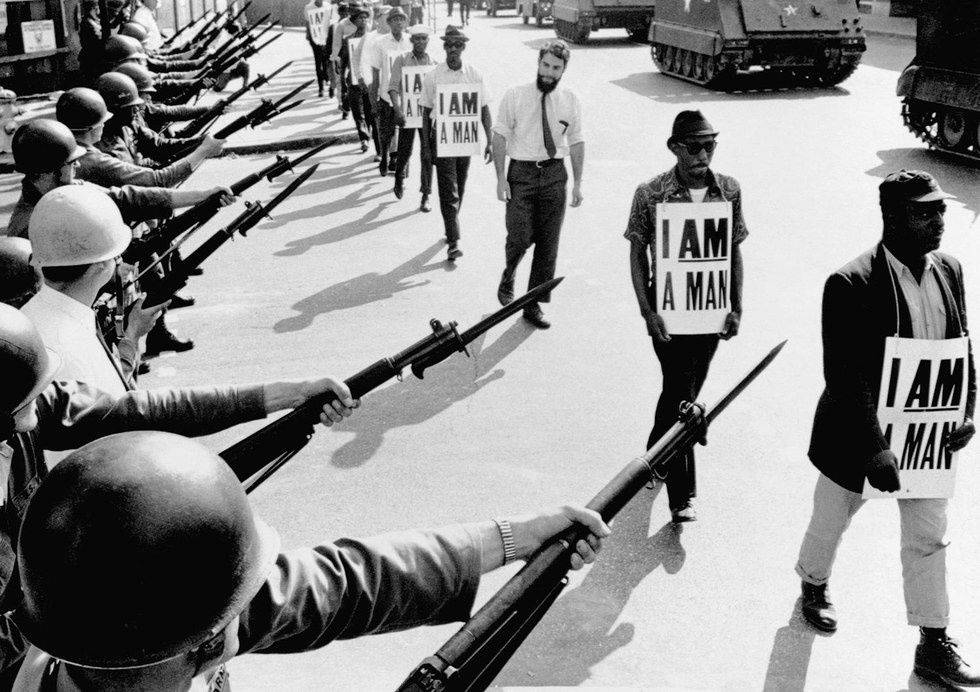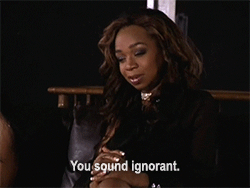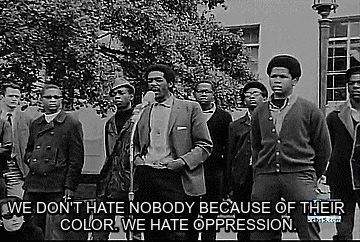Many of us have known and understood the objectivity of horrors that were hidden from us throughout American history: we have been subject to living under white supremacy, ableism, homophobia, transphobia, systemic racism, capitalism, patriarchy, and all other systems of oppression.
Though it is enlightening and reaffirming for us to come to an agreement of what socioeconomic, environmental problems exist and continue to permeate into our lives and our society, there are many contrarians who obviously disprove that these many systems, which oppress us, exist. And while many of them will renounce marginalized people's oppression as "millennial repining," they will contend that in order for us to coexist, we need to "ascend beyond" the calamities that have always been right in front of us.
Speaking from experience of a formerly colorblind Black man who grew up city-hopping from suburban neighborhood to the other and recognizing that systemic racism is more than one's volition to be racist, I've been learning that, within our colonized minds, there exists a maliciousness, a timidity, an unconscious subservience behind an 'individual inclination' for lunging all of our past occurrences behind us. As I was one of those people, I understood that these problems ingrained within us will never fix themselves. Systemic oppression has existed. Systemic oppression exists every day. At all times. No matter where I am.
These detrimental systems that keep us oppressed (e.g.: cisheteronormative, white supremacist, capitalist, patriarchy) have existed long before I was even born. Before delving into the main subject, I want to give a brief anecdote, which will follow into the rest of this explication. I went to a talk about a week or two ago on Black Male Feminism. The orator, David Ikard, explicated that our human behavioral psychology, is vindicated as Cultural Common Sense, when in truth, the oppressive ways in which we have been conditioned to act toward one another stem from dominant ideologies.
For example, a child talks back to their parent. The parent beats their child as an attempt to not get the child to listen, but because the parent wants to assert their dominance and maintain control as their authority figure. A woman chooses to wear a low-cut dress. She is slut-shamed for it. A 10-year old child has depression and experiences recurring suicidal ideations. Their parents invalidate the child's mental illness by suggesting that they are too young to have depression. Another example, a cisgender, heterosexual Black male is seen crying in pain. He is called gay, effeminate, and weak.
Let us critique the semantics of the idiomatic phrases that are used to very often to dismiss the dehumanizing commonplace reality we have been subjected to living in.
1. Move On - This phrase is used as a means of closure. When we humans are confronted with situations we cannot overcome, happenings we cannot avoid, or eventualities that we cannot control (because humans obviously can't control everything). We, to some degree, assert that we can only
acknowledge these things and accept thing for what they are.
When the phrase could be used: Saying that we should move on from an occurrence or situation, would only make sense when we attempt to fight, for example, the inevitability of rejection and disappointment.
When the phrase is used incorrectly: The phrase, "move on," is used out of maliciousness, denial, privilege, unconscious subservience, to suggest, for example, that oppression can be overcome. For the reason people will disapprove of the actuality of my oppression by contending it can be overcome by moving on from it, is unquestionably impossible. My ancestors could not "move on" from slavery. Neither can I. I cannot "move on" from oppressive systems that condemn me to arbitrary imprisonment or unjust, immediate death.
2. Live In The Moment - This phrase, is commonly used to assert that for as long as we remain present, we are perhaps void of past occurrences, and or pain.
When the phrase could be used: We can live in the moment and enjoy ourselves if we might be earning a Bachelor's Degree in College in Neurosciences. We can live in the moment if we are hanging out with close friends at a party. We can especially live in the moment if we've created something beautiful (e.g.: A literary piece, taken a photo, a child who has been born).
When the phrase is used incorrectly: Historically, we can infer that in traditional, philosophical Buddhist thought (e.g.: Taoism) and Hinduism ideology (e.g.: Upanishads). We are urged to live life contingent on the nonexistence of our egos, which is a self that is not our self (e.g.: anatman). This has become existentially problematic for us modern-day Westerners. The meaning, semantics, and contexts of a plethora of Buddhist and Hinduism texts have been bastardized in contemporary White supremacist popular culture. This means, that a person of color, a transgender man, or a woman cannot assume their oppression has been extinguished, simply by so-called "being present."
This way of thinking buries the detriment of these oppressive systems, and will likely worry them even more if they're always coerced to "live in the moment."
3. We're Progressive - The misuse of this word is egregious. It is used to assert that because Western civilization has improved because we've had a Black man in office for eight years, and that humans have become more efficient through technological advancement.
When could it ever be said that the people of America have truly progressed as a nation?
Progression, perhaps, to the indifferent liberals, conservatives, and those apolitical might very well be referring to change industrially and sensationalizing inward change ideally.
Some people who cling to their beliefs would prefer to live life as it is now. Nevertheless, the progression which a lot of us have idealized, and many of the people we know have been fighting for us, and are fighting for us now, have yearned for a truer progression.
Progression on a revolutionary scale means change in terms of representation, politically, socioeconomically, and existentially.
There is no change when we know Mass Incarceration still exists. There is no change when the White Elite wants to build the Dakota Access Pipeline where Native Americans' lives have been endangered in trying to protect their water. There is no change when we know the Flint water crisis in Michigan hasn't been resolved for three years plus. There is no change when men haven't reacted against rape culture and patriarchy. There is no change when white supremacist elitist hegemony still plagues our schools. And there will be probably no change–no progression–until we end the victim-blaming culture and human dismissiveness among one another in this country.
If you are complicit, it is because you are privileged. You are also complicit because you are used to living within the socially constructed illusions of "civility" and "order."
Have the idioms, "moving on," "living in the moment," and "being progressive" lost their meaning? Or, have these seemingly dismissive phrases truly become a destructive way of silencing dissent–expressing fake, obligatory concern for others, invalidating the reality of one's problems–or most likely all three?



























